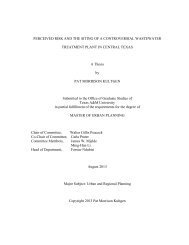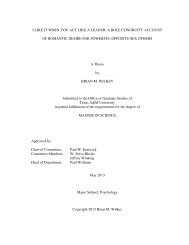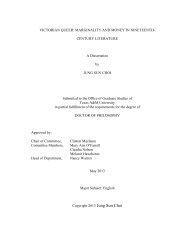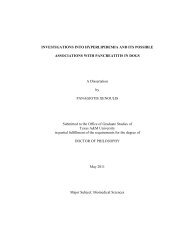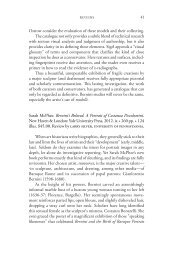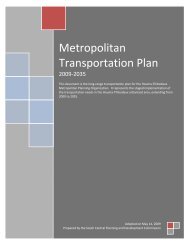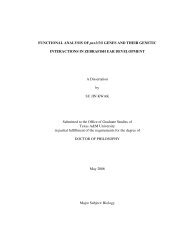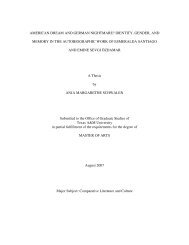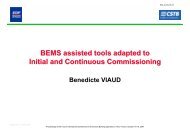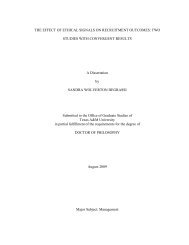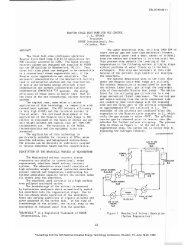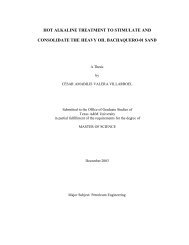A Dissertation by GRACE HUI-CHIN LIN Submitted to the Office of ...
A Dissertation by GRACE HUI-CHIN LIN Submitted to the Office of ...
A Dissertation by GRACE HUI-CHIN LIN Submitted to the Office of ...
Create successful ePaper yourself
Turn your PDF publications into a flip-book with our unique Google optimized e-Paper software.
that was described thickly and interpreted. As Clifford (1990) argued, <strong>the</strong> thick<br />
description provided a body <strong>of</strong> knowledge prefigured for <strong>the</strong>oretical development.<br />
Also, Denzin and Lincoln (1994) affirmed that <strong>the</strong> thick description emphasized<br />
more in description than conceptualization, and it determined whe<strong>the</strong>r <strong>the</strong> different<br />
examples in data were relevant <strong>to</strong> each o<strong>the</strong>r. This was <strong>the</strong> reason why this study<br />
could provide accurate concepts and <strong>the</strong>mes defined from <strong>the</strong> complex data collected<br />
from <strong>the</strong> interview.<br />
Open Coding<br />
Open coding was a significant qualitative strategy recommended <strong>by</strong> Glaser<br />
and Strauss (1999). It suggested that <strong>the</strong> content <strong>of</strong> <strong>the</strong> interview should be coded<br />
word <strong>by</strong> word and <strong>the</strong> text in transcription should be read line <strong>by</strong> line and interpreted<br />
ad hoc. The reason why this study used <strong>the</strong> analysis method <strong>of</strong> open coding was<br />
because open coding was related <strong>to</strong> <strong>the</strong> truth that we were doing our best <strong>to</strong> pay<br />
attention <strong>to</strong> <strong>the</strong> participants’ views.<br />
Strauss and Corbin (1990) argued, “Open coding is <strong>the</strong> process <strong>of</strong> breaking<br />
down, examining, comparing, conceptualizing and categorizing data” (p. 61). Also,<br />
Dey (2004) emphasized in <strong>the</strong> open-coding process, “<strong>the</strong> analyst must come <strong>to</strong> open<br />
coding without preconceptions, but not entirely without ideas” (p. 85). Specifically,<br />
open coding suggested researchers should be familiar with previous <strong>the</strong>ories, find out<br />
participants’ similar and different perceptions, and not ignore any details provided <strong>by</strong><br />
participants. Therefore, <strong>the</strong> method <strong>of</strong> open coding meant that everything <strong>of</strong>fered <strong>by</strong><br />
<strong>the</strong> respondents was valuable, and each marginal issue and phenomenon provided <strong>by</strong><br />
<strong>the</strong> participants should not be ignored at all. That is, trivial information expressed <strong>by</strong><br />
an individual had <strong>to</strong> be coded and discussed deeply and extensively.<br />
50



